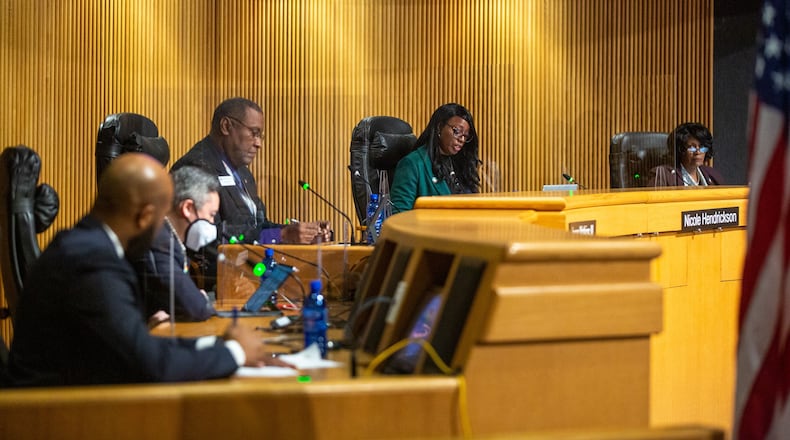Gwinnett’s new Housing and Community Development Division begins its initial year of operation with 10 employees and a budget of about $23 million.
The agency was created in August and was one of the recommendations from a comprehensive housing study that attempts to provide a blueprint for growth over the next 20 years, and find solutions to the county’s lack of housing and affordability.
The funding was approved for the county’s 2023 budget, passed in January. Most of the money is federal grants. The county’s general fund and its’ development and code enforcement fund will also contribute a combined $250,000, according to a county spokesman.
Matt Elder, the division’s director, said the funding will be used for public facility and infrastructure projects, such as sidewalks and sewers. Some funding will also go to an affordable housing development grant.
“We use that to provide nonprofits with the ability to build the homeownership and rental affordable housing on the ground, along with writing direct down payment assistance, tenant based rental assistance to residents through sub recipients,” Elder said of the program, known as HOME Grants.
The Emergency Solutions Grant, known as the division’s Homeless Assistance Program, is given to nonprofits to provide rentals, shelters and rental assistance to help individuals avoid evictions, Elder said.
The $247,870 from the county’s local funding will be used for operating expenses, such as for vehicles and transportation to jobs sites within the division.
The housing study found that the average home price has more than doubled and apartment rents have nearly doubled in Gwinnett County in the past decade.
Chris Hayward, the deputy director of the county’s Planning and Development Department, said the study confirmed a significant drop off in housing production over the past 15 years.
“And since that time, despite the fact that the economy has come back, we didn’t see (housing) production ever really even approach where it was pre-2008,” Hayward said.
The division is also working to address the diversity of options of the housing market, including more single-family homes, mid-rise apartments, duplexes, and condominiums.
“I think that’s been one challenge that ... can contribute to higher housing costs,” Hayward said.
About the Author




